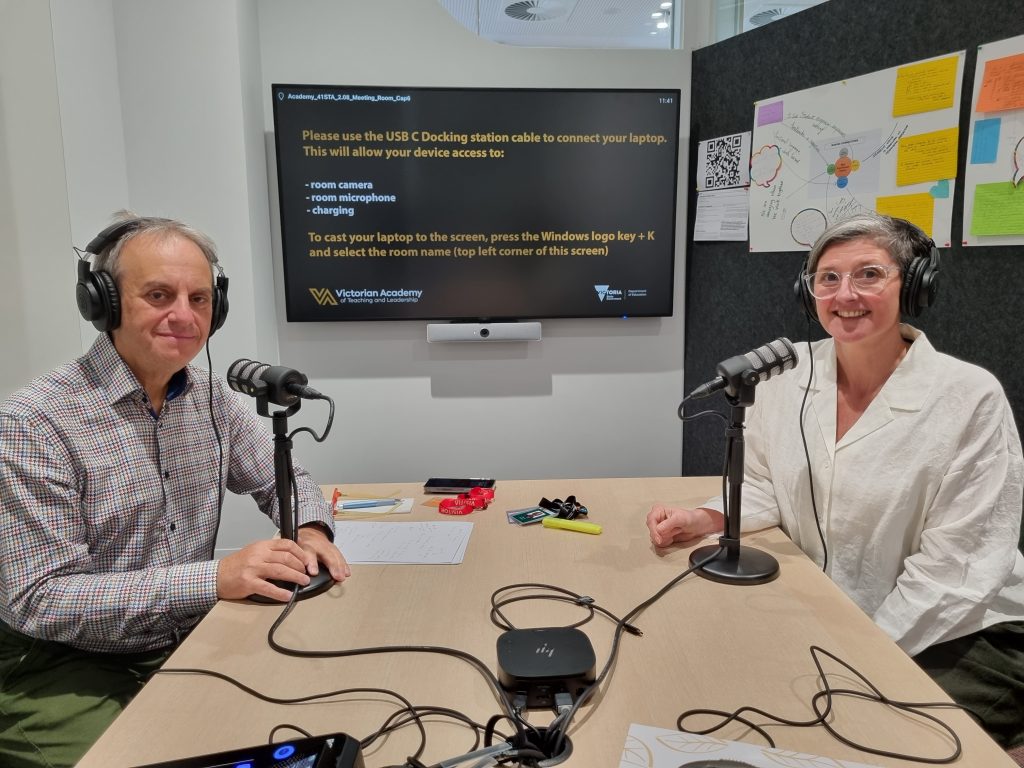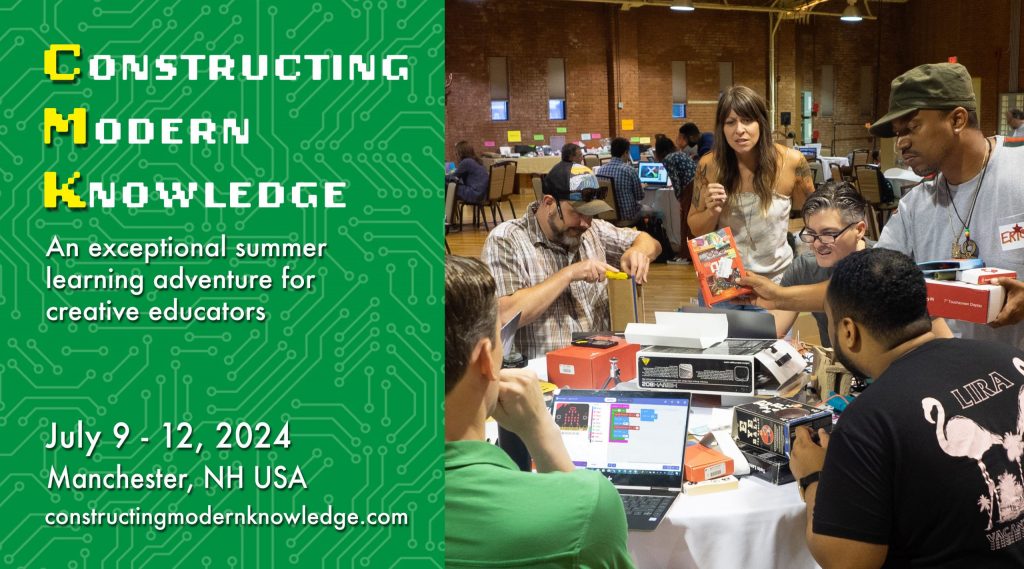During my most recent Australian keynoting, workshop, and consulting tour, I led a week’s worth of activities with the Victoria Academy of Teaching and Leadership, the State of Victoria’s authority for furnishing educator professional development. The work of the Academy is the gold standard for building, sustaining, and celebrating teaching excellence at a statewide level.
One of the joys of my recent collaboration was being engaged in conversation with three remarkable public school “master teachers,” on leave from the classroom to lead professional development activities for other educators. The three educators did their homework, possessed extraordinary communication skills, and came prepared to challenge my thinking. Each of these conversations was recorded and published as podcasts I am enormously proud of.
The Academy has granted permission to cross-post these podcast conversations in the Constructing Modern Knowledge podcast feed. I hope you will enjoy them. Please consider subscribing to the Academy’s podcast here.
The themes of the three podcast episodes are:
- Electrifying Children’s Mathematics
- AI in a Mathematics Classroom with Dr Gary Stager
- Dr. Gary Stager on the New, Now, & Wow in Technology

About this episode:
With a focus on mathematics, Academy Master Teacher Emma Moore is joined in this podcast by international thought leader, Dr. Gary Stager. In this episode they discuss how educators can use technology to create better mathematical thinking and learning experiences for students. This episode also touches on how computers and technology can create valuable learning adventures for students and teachers alike.
This podcast is 1 of 3 episodes featuring Dr. Gary Stager. In these, thought-provoking episodes, Gary aims to challenge educators to rethink the traditional ways of teaching mathematics and consider alternative methods for engaging students.
What is a computational environment?
A computational environment is the technology infrastructure and software platforms used to develop, test, deploy, and run software. In short, a computational environment is the software and physical technology used to enhance a learning experience. For example, a computational environment includes the computer or iPad a student may use in a lesson, the app/program they use and the technology behind both the physical device and software that powers it.
About Gary Stager
In addition to being a popular keynote speaker at some of the world’s most prestigious education conferences, Gary Stager is a journalist, teacher educator, consultant, professor, software developer, publisher, and school administrator. An elementary teacher by training, he has taught students from preschool through doctoral studies. In 1990, Dr. Stager led professional development in the world’s first laptop schools and played a major role in the early days of online education. Gary is the founder of the Constructing Modern Knowledge summer institute for educators.
Dr. Stager is co-author of Invent To Learn – Making, Tinkering, and Engineering in the Classroom, called the “bible of the maker movement in schools,” by Larry Magid of CBS and The San Jose Mercury News. Invent To Learn has been translated into nine languages. Dr. Stager’s most recent book is Twenty Things to Do with a Computer Forward 50: Future Visions of Education Inspired by Seymour Papert and Cynthia Solomon’s Seminal Work.
When Jean Piaget wanted to better understand how children learn mathematics, he hired Seymour Papert. When Dr. Papert wanted to create a high-tech alternative learning environment for incarcerated at-risk teens, he hired Gary Stager. This work was the basis for Gary’s doctoral dissertation and documented Papert’s most-recent institutional research project.
Dr. Stager’s work has earned a Ph.D. in Science and Mathematics Education and he collaborated on a project that won a Grammy Award. Recently, Gary was invited by Fondazione Reggio Children to lead a public seminar on education in Reggio Emilia, Italy. He has also taught children and doctoral students in Reggio Emilia.
Gary was on the advisory board of the NSF-funded project, BJC4NYC: Bringing a Rigorous Computer Science Principles Course to the Largest School System in the US. Dr. Stager also maintains the world’s largest archive of text and multimedia by Seymour Papert at The Daily Papert.
About Constructing Modern Knowledge
Constructing Modern Knowledge, July 9-12, 2024 is a minds-on institute for educators committed to creativity, collaboration and computing. Participant have the opportunity to engage in intensive computer-rich project development with peers and a world-class faculty. Inspirational guest speakers and social events round out the fantastic event.
While our outstanding faculty is comprised of educational pioneers, bestselling authors and inventors of educational technologies we depend on, the real power of Constructing Modern Knowledge emerges from the collaborative project development of participants.Rather than spend days listening to a series of speakers, CMK 2024 is about action. Attendees work on personally meaningful projects and interact with educational experts concerned with maximizing the potential of each learner. Animation, robotics, engineering, film-making, music composition, 3D printing, programming, wearable computing, Arduino, BBC micro:bits, microcontrollers, storytelling, and photography are all part of the CMK 2024 mix. The learning environment is filled with stimulating “objects to think with,” including a library, art supplies, and a mountain of tools & materials for tinkering. Constructing Modern Knowledge, now in its 15th year, is a minds-on institute for educators committed to creativity, collaboration, and computing. Inspirational guest speakers and social events round out a fantastic event.
See what makes Constructing Modern Knowledge unique by checking out the CMK wrap-up.
